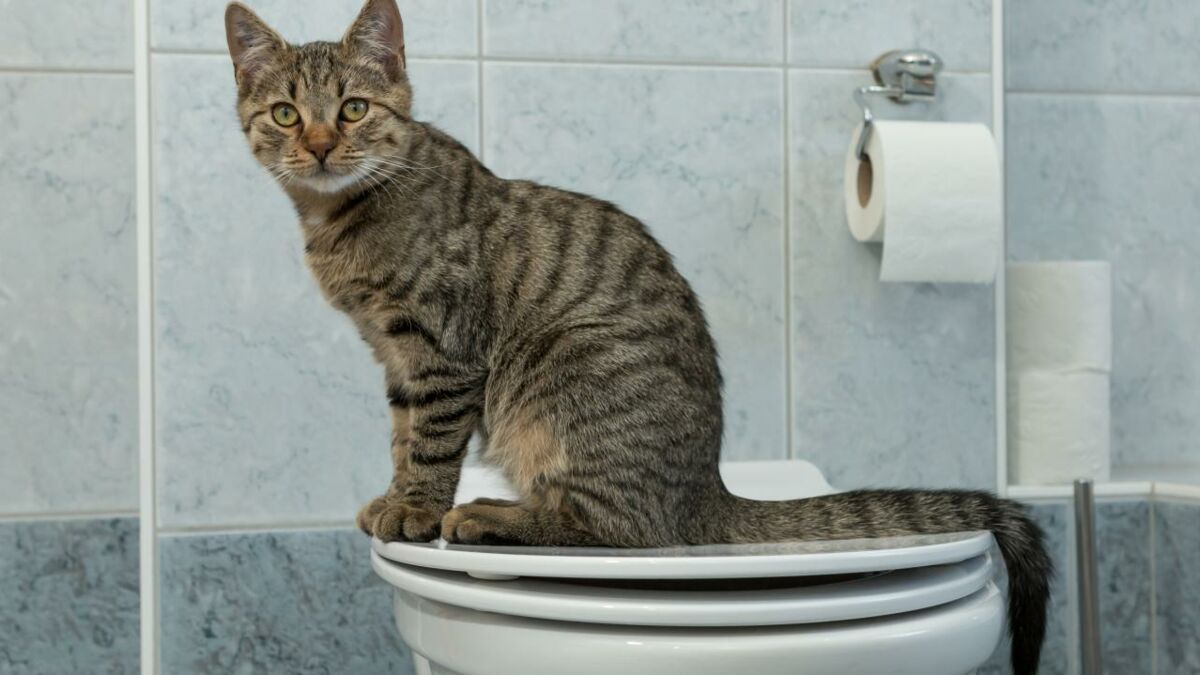Never Flush Cat Poop Down Your Toilet - Safeguard Your Plumbing System
Never Flush Cat Poop Down Your Toilet - Safeguard Your Plumbing System
Blog Article
We have noticed the article relating to How to Dispose of Cat Poop and Litter Without Plastic Bags down the page on the internet and felt it made sense to talk about it with you over here.

Introduction
As pet cat proprietors, it's necessary to be mindful of how we deal with our feline buddies' waste. While it may seem hassle-free to purge feline poop down the commode, this method can have damaging consequences for both the atmosphere and human health and wellness.
Environmental Impact
Flushing feline poop introduces harmful virus and bloodsuckers right into the supply of water, posing a significant danger to marine environments. These contaminants can adversely affect marine life and compromise water quality.
Health Risks
In addition to ecological issues, purging cat waste can also position health and wellness dangers to people. Feline feces might include Toxoplasma gondii, a bloodsucker that can cause toxoplasmosis-- a potentially serious disease, particularly for expecting ladies and people with damaged immune systems.
Alternatives to Flushing
Fortunately, there are safer and a lot more accountable ways to dispose of pet cat poop. Think about the complying with options:
1. Scoop and Dispose in Trash
The most usual method of taking care of cat poop is to scoop it right into a naturally degradable bag and throw it in the trash. Make sure to use a devoted clutter inside story and get rid of the waste without delay.
2. Use Biodegradable Litter
Opt for biodegradable pet cat clutter made from products such as corn or wheat. These clutters are environmentally friendly and can be safely gotten rid of in the trash.
3. Bury in the Yard
If you have a yard, take into consideration burying pet cat waste in a designated location far from veggie yards and water resources. Make certain to dig deep enough to prevent contamination of groundwater.
4. Set Up a Pet Waste Disposal System
Purchase a pet waste disposal system specifically created for cat waste. These systems make use of enzymes to break down the waste, reducing smell and environmental influence.
Verdict
Responsible pet ownership extends beyond providing food and sanctuary-- it also includes correct waste monitoring. By avoiding purging feline poop down the toilet and choosing alternative disposal techniques, we can lessen our ecological footprint and shield human health.
Why You Should Never Flush Cat Poop Down the Toilet
A rose by any other name might smell as sweet, but not all poop is created equal. Toilets, and our sewage systems, are designed for human excrement, not animal waste. It might seem like it couldn’t hurt to toss cat feces into the loo, but it’s not a good idea to flush cat poop in the toilet.
First and foremost, assuming your cat uses a litter box, any waste is going to have litter on it. And even the smallest amount of litter can wreak havoc on plumbing.
Over time, small amounts build up, filling up your septic system. Most litter sold today is clumping; it is made from a type of clay that hardens when it gets wet. Ever tried to scrape old clumps from the bottom of a litter box? You know just how cement-hard it can get!
Now imagine just a small clump of that stuck in your pipes. A simple de-clogger like Drano isn’t going to cut it. And that means it’s going to cost you big time to fix it.
Parasitic Contamination
Believe it or not, your healthy kitty may be harboring a nasty parasite. Only cats excrete Toxoplasma in their feces. Yet it rarely causes serious health issues in the cats that are infected. Most people will be fine too if infected. Only pregnant women and people with compromised immune systems are at risk. (If you’ve ever heard how women who are expecting are excused from litter cleaning duty, Toxoplasma is why.)
But other animals may have a problem if infected with the parasite. And human water treatment systems aren’t designed to handle it. As a result, the systems don’t remove the parasite before discharging wastewater into local waterways. Fish, shellfish, and other marine life — otters in particular — are susceptible to toxoplasma. If exposed, most will end up with brain damage and many will die.
Depending on the species of fish, they may end up on someone’s fish hook and, ultimately on someone’s dinner plate. If that someone has a chronic illness, they’re at risk.
Skip the Toilet Training
We know there are folks out there who like to toilet train their cats. And we give them props, it takes a lot of work. But thanks to the toxoplasma, it’s not a good idea.

I hope you enjoyed our piece about Can You Flush Cat Poo or Litter Down the Toilet?. Thanks a ton for taking a few minutes to read through our article. Loved our post? Please share it. Help others check it out. Thank-you for your time invested reading it.
Click Here Report this page